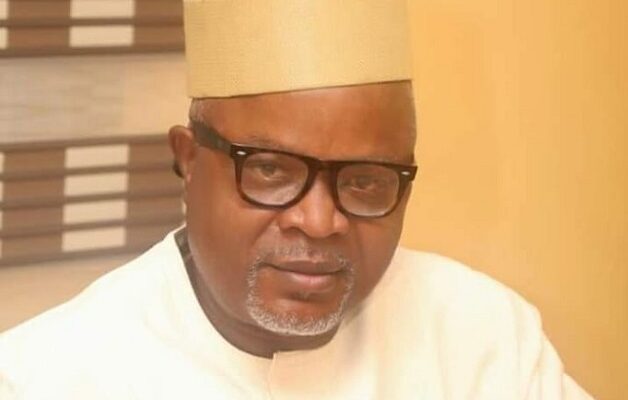It is trite that no single government can address all the challenges and deliver all democratic dividends; hence, the needs to focus on critical issues that will impact efficient service delivery and lay a foundation for sustainable national propensity.
The role of succession and transition planning is important for the continuity of governance in the country. Such always brings to note the role of collective efforts to achieve developmental programmes.
The All Progressives Congress (APC) came to power promising change in the polity.
One of the ways of bringing about this promised change is the adoption of a systematic and pragmatic approach in project execution through emphasis on completion of projects not finished its predecessor.
Many will argue that this approach was a rapid departure from our old ways of doing things in this country where projects left behind by previous governments are abandoned and new ones conceived, to a systematic approach of the APC which emphasized the completion of projects, especially as government is a continuum.
The APC has this philosophy, which must be applauded by all, because no government can solve all the problems of its people; however, what matters most is the focus on delivery in critical areas that would improve public welfare.
The APC is therefore a party that opined through its good governance philosophy that continuity and succession planning should be given high premium in order to build on lasting foundation for prosperity.
The APC also has a philosophy that understands the need for collaboration among government agencies in the attainment of government’s policies and programmes.
Therefore, one can perfectly say that herein lies the success story of the APC government in its infrastructural projects execution throughout the nooks and crannies of the country.
Many have applauded the outgoing government of President Muhammadu Buhari for its dedication and patriotism in delivery of its nine-point agenda—an agenda that has turned around the nation’s fortunes for good.
It is expected that the next government, which, by the grace of God, would be formed by the APC, will build on all legacy projects of its predecessor by providing progressive governance to Nigerians.
Nigerians are therefore urged to vote for continuity because the presidential candidate of the APC in the February 25, 2023 election, Asiwaju Bola Ahmed Tinubu, has promised that his government would be devoted to continuity, particularly of projects that will bring prosperity to the citizenry.
He added that his guiding principle will be anchored on providing the best of progressive governance and also reform the nation from where the Buhari Administration left.
The APC is a party that has shown by the performances of President Buhari that sustaining its commitment to infrastructural development, which are evident in the handling of many projects nationwide, is the road to follow.
The APC-led Buhari Administration has handled over 914km of completed SUKUK road projects nationwide; embarked on reconstruction of 21 selected federal roads totalling 1; 804.6km under its road infrastructural development refurbishment investment tax credit policy.
The roads, which are funded by the NNPC Ltd , are in addition to similar existing collaborations with Messrs Dangote Industries Limited and other corporate organisations, to improve the state of our road infrastructure.
On roads projects, the APC administration has also constructed 408km of roads, 2,499km of SUKUK roads and maintenance of 15,961km of roads across the country.
Key among these projects are the construction of the 1.9 km 2nd Niger bridge linking Anambra and Delta States with 10.30 km approach road; rehabilitation, construction and expansion of Lagos/Shagamu/Ibadan dual carriageway as well as the ongoing rehabilitation of the Abuja/ Kaduna/Zaria/ Kano road, among others.
These projects will never be abandoned by any successive APC governments when elected.
The Federal Government is executing a number of critical projects in the power sector through its transmission, rehabilitation and expansion program which will result in achievement of the national goal of improved power supply by 2025 and the Tinubu administration would never abandon such.
Also on the power sector, the implementation of the “willing buyer- willing sellers” policy introduced by the Buhari Administration, which has opened up opportunities for increased delivery of electricity to under- served homes and industries, would be sustained and many more projects–too many to mention– executed and ongoing by the Buhari Administration.
Finally, over the years, Nigeria’s Federal Governments have invested huge sums of money in programs and projects for socio- economic development to improve her citizens’ well-being. However, the implementation of most of these programs failed or were abandoned.
There is a lack of commitment in addressing those lacuna and the specific mechanisms through which politics and culture shaped these failed implementations and projects abandonment.
Partisan politics which demonstrated strong favouritism towards one preferred political party, adherence to party policies and reluctance to compromise with political opponents provided appropriate framework to clarify the role of politics in programs and project abandonment and ineffective implementation debates.
The APC, after careful analysis, revealed three causative factors– political culture, political corruption and poor planning and implementation which are shaped by partisan politics in the Nigeria contest— and moved to address them.
These anomalies impacted negatively on the unity and socio- economic development of the country. The APC stated its position on government as a continuum and we shall do well as a nation if we let the party continue in national governance by renewing its mandate from next month.
– Dr Tom Ohikere is the Executive Director, APC Good Governance Campaign.



